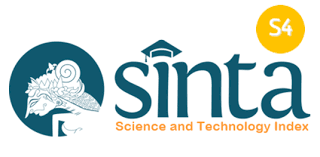EXPLORING WRITING INSTRUCTION-BASED PROCESS WRITING APPROACH IN TERTIARY LEVEL OF EFL ARGUMENTATIVE WRITING CLASSROOM
DOI:
https://doi.org/10.36733/jsp.v12i2.5196Keywords:
EFL Argumentative Writing, Process Approach, Writing InstructionAbstract
Within the 21st century, students are demanded to argue reasonably over massive information that they receive. It is necessitated for the students to filter acceptable and reasonable information for their meaningful learning. Involving 28 sophomores in English Language Education Study Program, a descriptive qualitative research design was utilized, aimed at figuring out the impact of writing instruction-based process approach towards the students’ EFL argumentative writing skill and deciphering their responses toward writing instruction-based process approach. The respondents’ progress in argumentative writing and views were gauged to reach the conclusion. Threefold methods of collecting data were administered; observation, interview, as well as focus group discussion (henceforward, FGD). Afterwards, the data collected were filtered, presented and verified. After analyzing the collected data, it was found that writing instruction-based process approach had good impact on the students’ argumentative writing development. Then, the participants responded positively towards the writing instruction-based process approach.
Downloads
References
Agesta, S., & Cahyono, B. Y. (2017). Effect of process-genre approach on the Indonesian EFL writing achievemnt across personality. International Journal of English Language and Linguistics Research, 5(3), 39–48. https://doi.org/10.1038/132817a0
Astorga, M. C. (2007). Pedagogies : An international teaching academic writing in the EFL context : Redesigning pedagogy. Pedagogies: An International Journal, 2(4), 251–267. https://doi.org/10.1080/15544800701670089
Attali, Y., & Burstein, J. (2006). Automated Essay Scoring With e-rater® V.2. The Journal of Technology, Learning, and Assessment, 4(3).
Behizadeh, N. (2019). Realizing powerful writing pedagogy in U.S. public schools. Pedagogies: An International Journal, 14(4), 261–279. https://doi.org/10.1080/1554480X.2019.1671847
Berold, R. (2015). What do writing students need ? The rhodes masters in creative writing. Current Writing: Text and Reception in Southern Africa, 27(2), 139–144. https://doi.org/10.1080/1013929X.2015.1088262
Cahyono, B. Y., Kurnianti, O. D., & Mutiaraningrum, I. (2016). Indonesian EFL teachers’ application of TPACK in in-service education teaching practices. International Journal of English Language Teaching, 4(5), 16–30.
Coffin, C., Curry, M. J., Goodman, S., Hewings, A., Lillis, T. M., & Swann, J. (2003). Teaching academic writing: A toolkit for higher education. Routledge. https://doi.org/10.1177/003368820403500212
Davis, A. (2015). Effective writing instruction: Evidence-based classroom practices (Vol. 41, Issue 2). Eleanor Curtain Publishing.
Gonye, J., Mareva, R., Dudu, W. T., & Sibanda, J. (2012). Academic writing challenges at Universities in Zimbabwe: A case study of great Zimbabwe University. International Journal of English and Literature, 3(3), 71–83. https://doi.org/10.5897/ijel11.092
Gressick, J., & Langston, J. B. (2017). The guilded classroom: Using gamification to engage and motivate undergraduates. Journal of the Scholarship of Teaching and Learning, 17(3), 109–123. https://doi.org/10.14434/v17i3.22119
Hasani, A. (2016). Enhancing argumentative writing skill through contextual teaching and learning. Educational Research and Reviews, 11(16), 1573–1578. https://doi.org/10.5897/ERR2016.2806
Huot, B. (2002). (Re)articulating writing assessment for teaching and learning. In All USU Press Publications.
Mccarthey, S. J., & Ro, Y. S. (Ellie). (2011). Approaches to writing instruction. Pedagogies: An International Journal, 6(4), 273–295. https://doi.org/10.1080/1554480X.2011.604902
Mora-González, C. A., Anderson, C. E., & Cuesta-Medina, L. (2018). Graphic organizers support young L2 writers’ argumentative skills. GiST Education and Learning Research Journal, 17(17), 6–33. https://doi.org/10.26817/16925777.433
Neff-van Aertselaer, J. A. (2013). Contextualizing EFL argumentation writing practices within the Common European Framework descriptors. Journal of Second Language Writing, 22(2), 198–209. https://doi.org/10.1016/j.jslw.2013.03.010
Nejmaoui, N. (2018). Improving EFL learners’ critical thinking skills in argumentative writing. English Language Teaching, 12(1), 98. https://doi.org/10.5539/elt.v12n1p98
Pei, Z., Zheng, C., Zhang, M., & Liu, F. (2017). Critical thinking and argumentative writing: Inspecting the association among EFL learners in China. English Language Teaching, 10(10), 31. https://doi.org/10.5539/elt.v10n10p31
Prata, M. J., de Sousa, B., Festas, I., & Oliveira, A. L. (2019). Cooperative methods and self-regulated strategies development for argumentative writing. Journal of Educational Research, 112(1), 12–27. https://doi.org/10.1080/00220671.2018.1427037
Pring, R. (2005). Philosophy of education: Aims, theory, common sense and research. Continuum.
Singh, R. R. (1991). Education for the twenty-first century: Asia-pacific perspectives. UNESCO.
Spence, L. K., & Kite, Y. (2017). Beliefs and practices of writing instruction in Japanese elementary schools. Language, Culture and Curriculum. https://doi.org/10.1080/07908318.2017.1338296
Sun, C., & Feng, G. (2009). Process approach to teaching writing applied in different teaching models. English Language Teaching, 2(1), 150–155. https://doi.org/10.5539/elt.v2n1p150
Downloads
Published
Issue
Section
License
Copyright (c) 2022 FKIP Unmas Denpasar

This work is licensed under a Creative Commons Attribution 4.0 International License.











